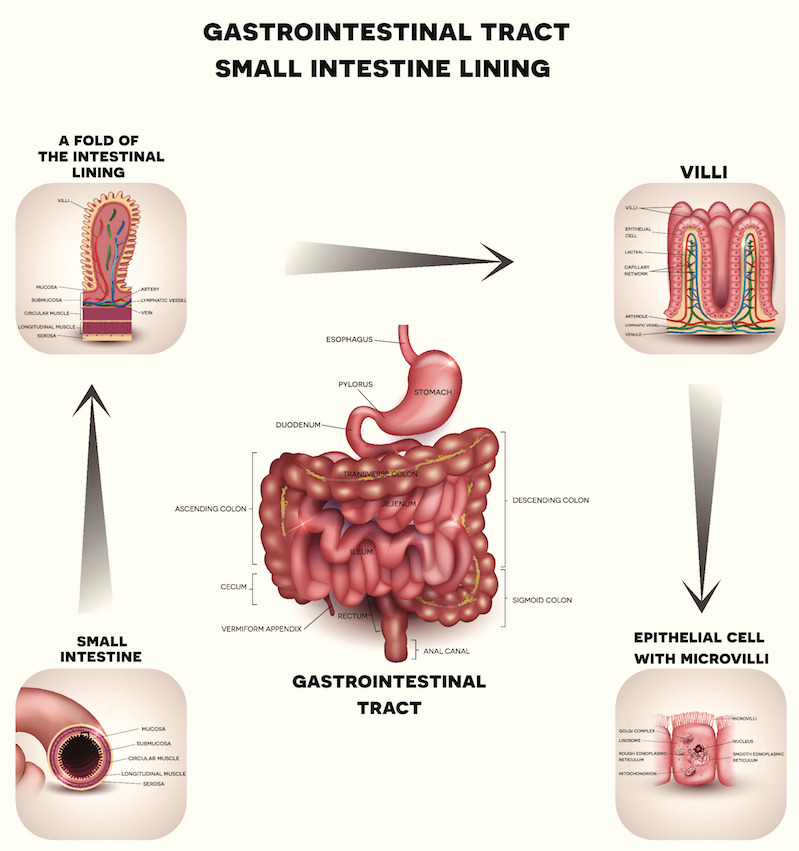What Is SIBO and What Can I Do About It?
Do you suffer from bloating, gas, or chronic diarrhea? Have you been diagnosed with irritable bowel syndrome (IBS)? If so, the problem may not be your gastrointestinal tract but what’s inside it. You may have SIBO.
SIBO is short for small intestinal bacterial overgrowth — the presence of excessive bacteria in the small intestine and/or changes in the types of bacteria normally present. (The small intestine, or small bowel, is the section of the gastrointestinal tract that connects the stomach to the large intestine and is responsible for most nutrient absorption.) SIBO is often the underlying cause of chronic diarrhea, nutritional deficiencies, unplanned weight loss, and osteoporosis.
Left untreated, SIBO negatively impacts the structure and function of the small intestine. The overpopulation of bacteria can damage the lining of the small intestine, which can cause leaky gut — a condition in which large protein molecules pass through the intestine into the bloodstream, triggering immune reactions that can result in food allergies or sensitivities, chronic inflammation, and autoimmune diseases.
Recognizing the Risk Factors
The following risk factors increase the likelihood of a person developing SIBO: Continue reading…



